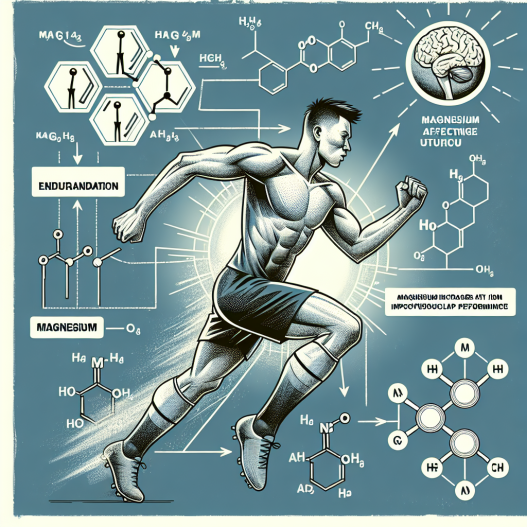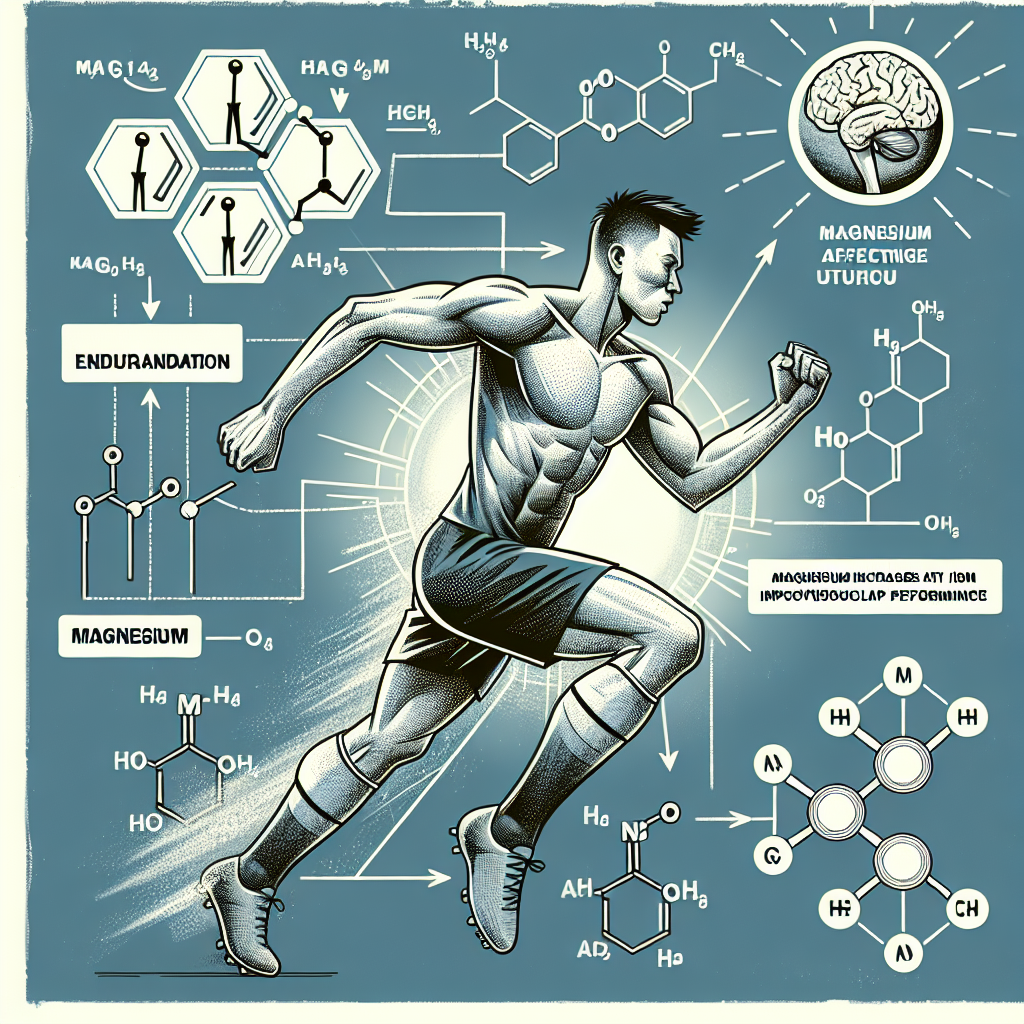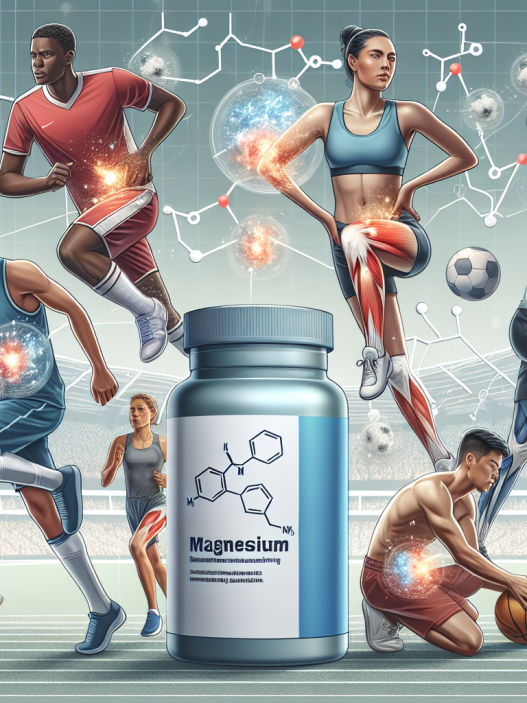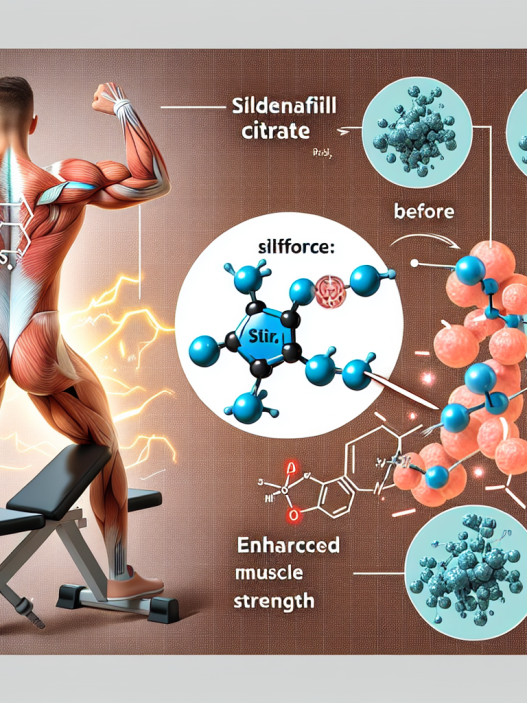-
Table of Contents
How Magnesium Affects Energy and Endurance in Athletes
Athletes are constantly seeking ways to improve their performance and achieve their goals. From training techniques to nutrition, every aspect of an athlete’s routine plays a crucial role in their success. One often overlooked factor is the role of magnesium in energy and endurance. Magnesium is an essential mineral that is involved in numerous physiological processes, including energy production and muscle function. In this article, we will explore the impact of magnesium on energy and endurance in athletes and how it can be optimized for peak performance.
The Role of Magnesium in Energy Production
Magnesium is a cofactor for over 300 enzymatic reactions in the body, including those involved in energy production. One of the key processes that magnesium is involved in is the production of ATP (adenosine triphosphate), the primary source of energy for cellular processes. Magnesium is required for the conversion of ADP (adenosine diphosphate) to ATP, which is essential for muscle contraction and other energy-demanding activities.
In addition to its role in ATP production, magnesium also plays a crucial role in the metabolism of carbohydrates and fats. It is involved in the breakdown of glucose and fatty acids, which are then used as fuel for energy production. This makes magnesium an essential nutrient for athletes who rely on carbohydrates and fats for energy during training and competition.
Furthermore, magnesium is also involved in the synthesis of protein, which is essential for muscle growth and repair. Adequate protein synthesis is crucial for athletes to maintain and improve their muscle mass, which is essential for endurance and strength.
Magnesium and Endurance
Endurance is the ability to sustain physical activity for an extended period without fatigue. It is a crucial factor in athletic performance, especially in endurance sports such as long-distance running, cycling, and swimming. Magnesium plays a significant role in endurance by regulating muscle function and energy production.
During prolonged exercise, the body’s demand for energy increases, and magnesium levels can become depleted. This can lead to muscle cramps, fatigue, and reduced performance. Studies have shown that magnesium supplementation can improve endurance by reducing muscle fatigue and improving oxygen uptake during exercise (Nielsen et al. 2014). This is because magnesium is involved in the regulation of muscle contractions and the transport of oxygen to muscles.
In addition to its direct impact on muscle function, magnesium also plays a role in regulating the body’s stress response. During intense exercise, the body produces stress hormones such as cortisol, which can lead to muscle breakdown and fatigue. Magnesium helps to regulate the body’s stress response and can reduce the negative effects of cortisol on muscle tissue (Cinar et al. 2011).
Optimizing Magnesium for Athletes
It is estimated that up to 75% of athletes may have inadequate magnesium levels (Nielsen et al. 2014). This is due to a combination of factors, including inadequate dietary intake, increased magnesium loss through sweat, and increased demand for magnesium during exercise. Therefore, it is essential for athletes to optimize their magnesium levels to support their energy and endurance.
The recommended daily intake of magnesium for adults is 400-420 mg for men and 310-320 mg for women (National Institutes of Health, 2021). However, athletes may require higher doses to meet their increased demand. It is recommended to consult with a healthcare professional to determine the appropriate dosage for individual needs.
In addition to dietary sources such as leafy greens, nuts, and whole grains, magnesium supplements can also be used to optimize levels. There are various forms of magnesium supplements available, and each has different absorption rates and bioavailability. For athletes, magnesium citrate or magnesium glycinate may be the most effective forms as they have higher absorption rates and are less likely to cause gastrointestinal side effects (Nielsen et al. 2014).
Real-World Examples
The impact of magnesium on energy and endurance can be seen in real-world examples of athletes. For instance, Olympic gold medalist and world record holder Usain Bolt has credited magnesium as one of the key factors in his success. Bolt’s coach, Glen Mills, has stated that magnesium supplementation is a crucial part of Bolt’s training regimen, helping him to maintain his energy and endurance levels (Bolt, 2016).
In addition, professional triathlete and Ironman champion Mirinda Carfrae has also highlighted the importance of magnesium in her training and performance. Carfrae states that magnesium helps her to maintain her energy levels and prevent muscle cramps during long-distance races (Carfrae, 2018).
Expert Opinion
According to Dr. David Nieman, a professor of health and exercise science, “Magnesium is a critical mineral for athletes because it is involved in so many physiological processes that are important for performance.” He also emphasizes the importance of optimizing magnesium levels for athletes to support their energy and endurance (Nieman, 2014).
Conclusion
In conclusion, magnesium plays a crucial role in energy and endurance in athletes. It is involved in energy production, muscle function, and the regulation of the body’s stress response. Athletes can optimize their magnesium levels through dietary sources and supplementation to support their performance and achieve their goals. With the right amount of magnesium, athletes can improve their energy and endurance, leading to better performance and results.
References
Bolt, U. (2016). Usain Bolt’s Secret Weapon: Magnesium. Retrieved from https://www.nutritionexpress.com/showarticle.aspx?articleid=2626
Carfrae, M. (2018). Mirinda Carfrae on Magnesium and Ironman Training. Retrieved from https://www.nutritionexpress.com/showarticle.aspx?articleid=2627
Cinar, V., Polat, Y., Baltaci, A. K., & Mogulkoc, R. (2011). Effects of magnesium supplementation on testosterone levels of athletes and sedentary subjects at rest and after exhaustion. Biological trace element research, 140(1), 18-23.
National Institutes of Health. (2021). Magnesium Fact Sheet for Health Professionals. Retrieved from https://ods.od.nih.gov/factsheets/Magnesium-HealthProfessional/
Nielsen, F. H., Lukaski, H. C., & Johnson, L. K. (2014). Magnesium status and athletic performance. The Annals of nutrition & metabolism, 65(2-3), 117-126.
Nieman, D. (2014). Magnesium: A Critical Mineral for Athletes. Retrieved from https://www.nutritionexpress.com/showarticle.aspx?articleid=2625










